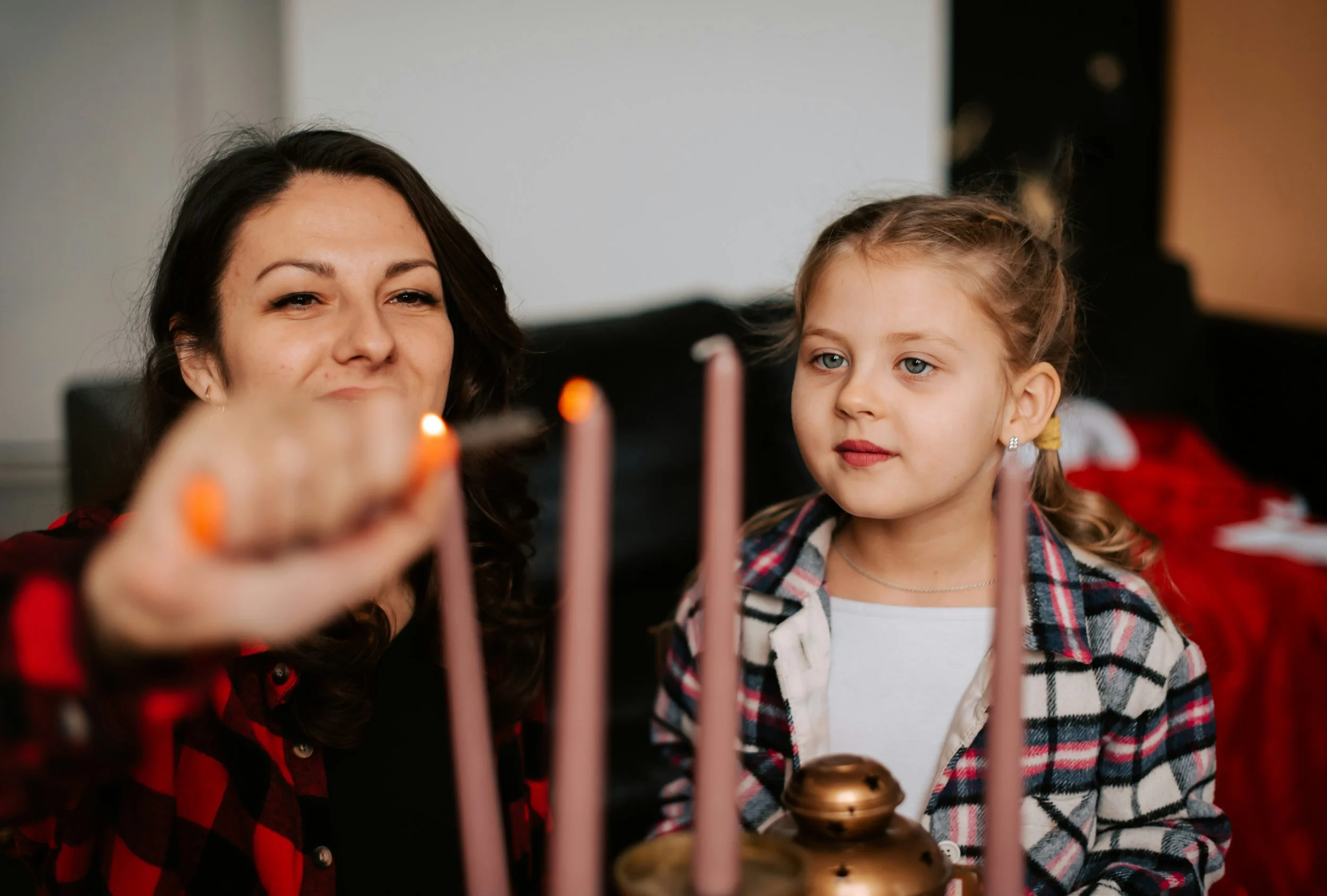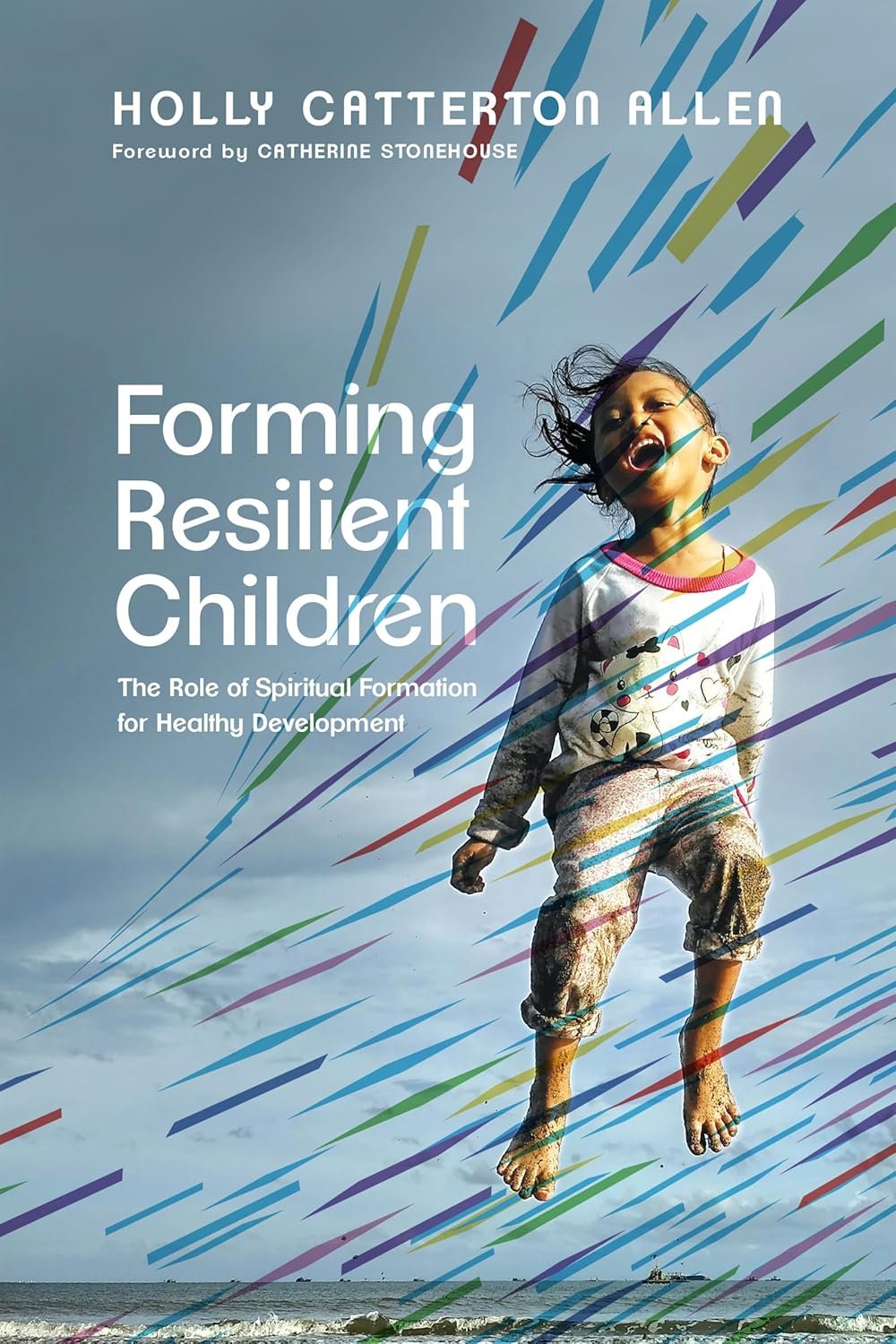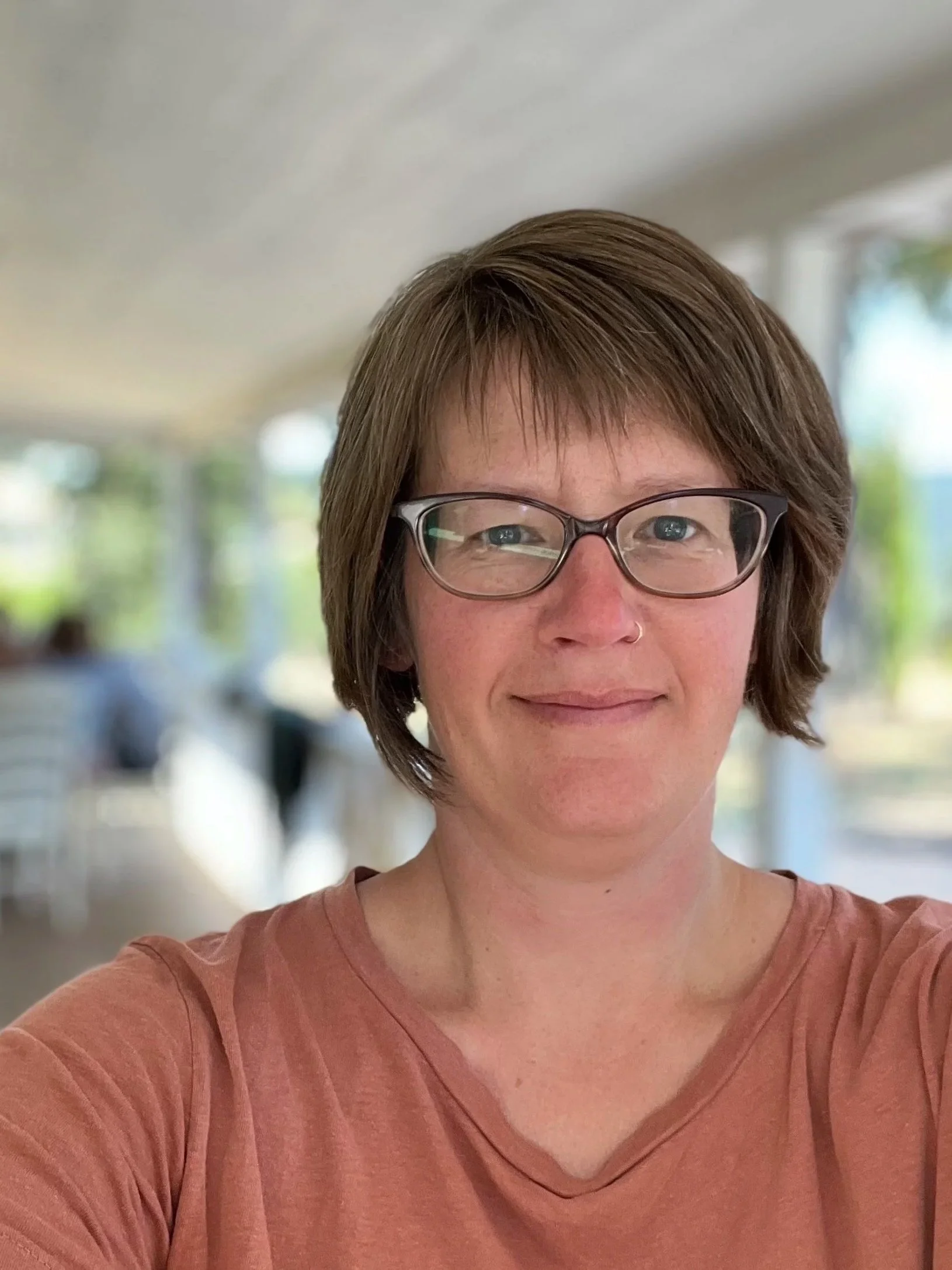
Children's Spirituality and Faith Formation Course
Fall 2025: September 15th-November 9th (8 weeks)
Course Description
This eight week course is for anybody who works with children and seeks to support them in their spiritual growth: pastors, ministry leaders, volunteers, parents, and caregivers. Through video teachings and a variety of readings and reflective activities, students in this course will have the opportunity to explore and study the spirituality and faith formation of children in light of various theological, psychological, sociological and cultural realities. We will examine some of the latest research on children’s spirituality and child development, and learn some strategies and best practices for nurturing a vibrant and resilient faith in children.
The course gives particular attention to current issues impacting children in both secular and faith-based settings and relevant spiritual practices for children. Throughout the course, students will be asked to consider their own faith formation, who and what impacted them and how this has shaped who they are today. They will also be challenged to consider how these issues impact the children in their lives and in their community, what practices and strategies can address negative impacts and nurture positive elements, and actions they can take to support the spiritual development and faith formation of children around them.
Course Registration
The course registration cost is $100/person. Registration includes access to all course content (video lectures, supplemental readings, and reflective activities) and an invitation to participate in bi-weekly Zoom calls with the course instructors (a total of 4 throughout the course). The registration cost does not include the cost of the course textbook. Note: annual subscribers to Storyline curriculum receive two free course registrations with the cost of their subscription.
-
-
What is Children's Spirituality?
As we begin our journey together, we want to first define what it is that we mean by "children's spirituality." We also want to begin considering our own story. As we seek to understand how children develop spiritually, one of the greatest resources we have to learn from are the memories of our own journey as a child.
As we begin our journey together, we want to first define what it is that we mean by "children's spirituality." We also want to begin considering our own story. As we seek to understand how children develop spiritually, one of the greatest resources we have to learn from are the memories of our own journey as a child.
-
-
-
How Souls are Formed and Reformed
In this lesson, therapist Corey Jackson shares a framework for thinking about the human soul and how souls are formed and reformed. Corey builds on Dallas Willard's framework for spiritual formation in his book Renovation of the Heart, describing five general areas of soul formation, how each plays an important part in a person's spiritual development, and how each area is important to consider and balance as one seeks to understand and nurture a child's spirituality.
In this lesson, therapist Corey Jackson shares a framework for thinking about the human soul and how souls are formed and reformed. Corey builds on Dallas Willard's framework for spiritual formation in his book Renovation of the Heart, describing five general areas of soul formation, how each plays an important part in a person's spiritual development, and how each area is important to consider and balance as one seeks to understand and nurture a child's spirituality.
-
Children as Theologians
Before we answer the question: What do we have to teach children about God? We want to first try to answer the question: What do children have to teach us about God? Answering this question will help us to appreciate the children in our lives as a group of people who should be listened to and valued as having a very important and unique contribution to make when it comes to understanding who God is and what God does.
Before we answer the question: What do we have to teach children about God? We want to first try to answer the question: What do children have to teach us about God? Answering this question will help us to appreciate the children in our lives as a group of people who should be listened to and valued as having a very important and unique contribution to make when it comes to understanding who God is and what God does.
-
-
-
The Child's Formative Relationships
For every person, the relational context in which they are raised (parents, grandparents, teachers, caregivers, neighbors, friends, spouse, partner) is hugely influential in the development of so many of the things that we associate with healthy spiritual formation – safety, identity, purpose, belonging, inner peace. In this lesson, we want to spend some time thinking about the key relationships that may influence and shape a child's spiritual development.
For every person, the relational context in which they are raised (parents, grandparents, teachers, caregivers, neighbors, friends, spouse, partner) is hugely influential in the development of so many of the things that we associate with healthy spiritual formation – safety, identity, purpose, belonging, inner peace. In this lesson, we want to spend some time thinking about the key relationships that may influence and shape a child's spiritual development.
-
-
-
Spiritual Formation and Trauma
In this lesson, you will learn about various types of trauma and grief that a child may face in life, and some of the potential sources of these experiences. Often these kinds of difficult experiences are connected to specific formative relationships in a child's life, but some struggles may be more disconnected from specific relationships. Regardless of their source, experiences of trauma will likely influence a child's spiritual development.
In this lesson, you will learn about various types of trauma and grief that a child may face in life, and some of the potential sources of these experiences. Often these kinds of difficult experiences are connected to specific formative relationships in a child's life, but some struggles may be more disconnected from specific relationships. Regardless of their source, experiences of trauma will likely influence a child's spiritual development.
-
-
-
God's Story, Our Story
The Bible provides an amazing and wonderful story in which humans can locate themselves and then discover answers to key questions of existence: Who am I? What am I here for? Where do I belong? With that in mind, we want to consider ways that adults can help children connect their own unique story to the Story of God and humanity that we read about in the Bible, and through that connection find deep and lasting answers to these questions that they will be able to carry with them into adulthood.
The Bible provides an amazing and wonderful story in which humans can locate themselves and then discover answers to key questions of existence: Who am I? What am I here for? Where do I belong? With that in mind, we want to consider ways that adults can help children connect their own unique story to the Story of God and humanity that we read about in the Bible, and through that connection find deep and lasting answers to these questions that they will be able to carry with them into adulthood.
-
-
-
Awe & Wonder
In this lesson, we will consider how adults can help children grow spiritually by encouraging curiosity and question asking about their life and their surroundings, making space for observation in and engagement with the natural world in all its diversity, and embracing moments of awe and wonderment. These experiences naturally lead to a deeper understanding of one's place in the world and the artistry and creativity of the God who designed it all and holds it all together.
In this lesson, we will consider how adults can help children grow spiritually by encouraging curiosity and question asking about their life and their surroundings, making space for observation in and engagement with the natural world in all its diversity, and embracing moments of awe and wonderment. These experiences naturally lead to a deeper understanding of one's place in the world and the artistry and creativity of the God who designed it all and holds it all together.
-
-
-
Body & Spirit
This week, we will explore how adults can support and nurture a child's connection with themselves, especially their own body and feelings. In many ways, children have a natural proclivity toward embodied spirituality as they tend to process life, for good or for bad, through all of themselves. We want to think about how adults can help children grow spiritually by nurturing their natural proclivity toward spiritual embodiment and supporting the connection of the spirit to the body.
This week, we will explore how adults can support and nurture a child's connection with themselves, especially their own body and feelings. In many ways, children have a natural proclivity toward embodied spirituality as they tend to process life, for good or for bad, through all of themselves. We want to think about how adults can help children grow spiritually by nurturing their natural proclivity toward spiritual embodiment and supporting the connection of the spirit to the body.
-
-
-
Intergerational & Co-Learning
In this lesson, we explore environments, strategies, tools and techniques that help to nurture a child's connection with others in their process of being formed spiritually. When we realize the importance of varied relationships, modeling, question asking and communal story-telling in a person's spiritual formation, we can start to understand why intergenerational relationships are crucial for a child's faith development.
In this lesson, we explore environments, strategies, tools and techniques that help to nurture a child's connection with others in their process of being formed spiritually. When we realize the importance of varied relationships, modeling, question asking and communal story-telling in a person's spiritual formation, we can start to understand why intergenerational relationships are crucial for a child's faith development.
-
Course Organization
-
In Part 1 of the course, we will cover foundational concepts for understanding and engaging the spirituality of children. We will learn about the concepts of spirituality and spiritual formation of humans generally, and then we will explore these ideas in relation to children specifically. We will talk about some of the most significant experiences and relationships that shape the spirituality of children including formative family relationships, experiences of personal trauma and suffering, cultural/societal factors, pastors and ministry leaders, and teachers. In this part of the course, we will also explore our own spiritual journeys as children in an effort to deepen our personal awareness of the things we are learning about and to identify points of connection, intersection, and application in our own lives.
-
In Part 2 of the course we will begin to think about how to nurture the spirituality and faith of children in our lives. The overarching question we want to try to answer is "How can adults help to nurture a deep, healthy, and lasting faith in children?" We will explore answers to this question from many different angles including the role of the Bible and storytelling, experiences of awe and wonder, embodied spirituality, and creating intergenerational and co-learning spaces.
Course Details
Course Structure
The course content is divided into eight weeks of topics and lessons (one lesson per week in most cases). Each lesson includes a lecture video (usually 45-60 minutes in length), textbook and supplemental readings, and reflective questions and/or activities related to the lesson topic. As an ungraded course, the material can be worked through each week at whatever pace works best for the student.
Live Zoom Calls
Four live Zoom call opportunities with the instructors will be offered during the course (every other week). These calls will be prescheduled throughout the eight-week course with the possibility of changing the date/time to accommodate the maximum number of registered students. Information to access these Zoom calls will be emailed to all registered students.
Textbook & Reading
The main textbook for our course is Holly Allen's Forming Resilient Children: The Role of Spiritual Formation for Healthy Development (IVP, 2021).
Dr. Holly Catterton Allen retired in 2022 from her position as Professor of Christian Ministries and Family Science at Lipscomb University in Nashville, Tennessee, where she taught undergraduate courses such as Family Ministry and Nurturing Spiritual Development in Children. In retirement, her areas of interest continue to be children’s spiritual formation and intergenerational ministry. From 2015-2021, she chaired two biennial international, cross-denominational conferences: InterGenerate and the Children’s Spirituality Summit. Dr. Allen previously taught at John Brown University, Biola University, and Abilene Christian University.
Dr. Allen is the co-author of Intergenerational Christian Formation: Bringing the Whole Church Together in Ministry, Community, and Worship, 2nd edition (InterVarsity Academic, 2023). She also edited InterGenerate: Transforming Churches through Intergenerational Ministry (ACU Press, 2018). Her first book, Nurturing Children’s Spirituality: Christian Perspectives and Best Practices (Cascade), an edited volume, was released in 2008.
The textbook is not included in cost of course registration, and must be purchased independently by each student. Other supplemental course readings are provided to students to download on the course site under fair use copyright laws. These materials should not be copied or distributed to others.
Course Instructors
HEATHER
AARON
Aaron Friesen, Ph.D.
Aaron has served in a variety of roles as a local church pastor and college instructor for the past fifteen years. He is currently the Co-Lead Pastor at CitySalt Church in Eugene and Project Faculty member in the Doctor of Global Leadership program at Portland Seminary. He also serves as an adjunct instructor at Bushnell University and Life Pacific University. Aaron earned a Master of Divinity from Fuller Theological Seminary and a PhD in Theology from the University of Wales in the UK. He is also a member of the Sixth Ecclesial Theologian Fellowship at the Center for Pastor Theologians. He loves going on adventures to new places with his wife, Heather, and four kids, and his perfect day would involve an excellent cup of coffee (or two!), a hike to somewhere beautiful and serene, and some good conversation over a pint at a warm pub.
Heather Friesen, M.A.
Heather has been a public elementary school teacher for the past twenty-three years. Currently, she teaches third grade at Clear Lake Elementary School in the Bethel School District. She got her Bachelor’s degree in elementary education from Bushnell University and her Master’s degree in Educational Psychology with an emphasis in Curriculum, Instruction and Design from Cal State Northridge. In her over twenty years in education, Heather has taught everything from preschool to college in a variety of positions. She also uses this knowledge and experience to serve the community at CitySalt Church as the Children’s Ministry Director. With four children, a dog, two cats and a fish, there isn’t a lot of free time, but when she can squeeze out a little time and space, she enjoys taking advantage of their Pacific Northwest home by hiking, enjoying good coffee with friends or sitting by the ocean.
Course FAQ
-
The course registration cost is $100/person. Registration includes access to all course content (video lectures, supplemental readings, and reflective activities) and an invitation to participate in bi-weekly Zoom calls with the course instructors (a total of 4 throughout the course). The registration cost does not include the cost of the course textbook. Note: annual subscribers to Storyline curriculum receive up to two free course registrations with the cost of their subscription.
-
Once registered, you can access the course lessons and track your progress in the course directly from this page. Information to access the live Zoom calls throughout the course will be emailed to registered students.
-
No. The course is offered purely as a self-paced professional development course. This allows us to keep the cost of the course relatively low and provide the content in a very flexible format. That said, the content we offer in this course aligns with those that we have taught for credit at colleges and universities.





